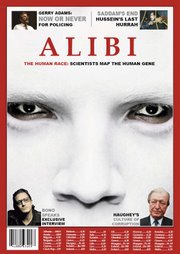This modern forum, or what Habermas called ‘the public sphere’ , is where culture is formed and history recorded. It is thus that “citizens necessarily depend on the multitudinous media to be informed.” Here, in an ideal democracy, journalism may, as media theorist Monroe puts it, “serve as an envelope for the gelling of views so as to have an influence on the state and to render its decisions more responsive.”
Due to the media’s importance in shaping public-opinion and “recent research on agenda-setting has seen that media do exert significant influence”. It is often a target for institutional or organisational interests which fear ‘negative publicity’ and
depend on voter, client or customer goodwill, […] while fearing news that can endanger that goodwill. As a result they often react almost immediately to ‘bad’ news and may alter their […] public behaviour in response to it.” GainsLord Reith, founder of the BBC, tried to reinforce the impartiality and balance of the media in Britain by assigning to it a ‘public service’ remit. He sought to imbue state broadcasting with a responsibility to ‘inform, educate and entertain’ which would protect the ‘public sphere’ from the “biased ideological dominance of market values.”
“the element that contributes to excellence in public-service [news media] is the development of a system that is immunized from direct government intervention.” Edwin Monroe
The ownership and control of private media organisations however, has proved an easily subverted link in this chain of information. “The [news-media] is unable to tell us what to think, but it is stunningly successful in telling us what to think about.” Journalist and critic Walter Lippmann believed that neither public nor journalist were capable of making informed decisions: that was the domain of the ‘Policymakers’ . I believe here is where the battle for the public sphere (and public opinion) is being waged. The journalist subverts the policymaker with real news and the policymaker undermines journalism with ‘messages’. It is Chomsky’s assertion that
“In today’s world, the aim [of the reporter] should be to attack institutions while trying at the same time to pry them open to more meaningful public participation”
The ownership and control of private media organisations however, has proved an easily subverted link in this chain of information.
“The [news-media] is unable to tell us what to think, but it is stunningly successful in telling us what to think about.” CohenJournalist and critic Walter Lippmann believed that neither public nor journalist were capable of making informed decisions: that was the domain of the ‘Policymakers’ .
“In the reporter’s gallery there yonder sat a Fourth Estate more important than they all […] He who can speak, speaking now to the whole nation, becomes a power, a branch of government. It matters not what rank he has, what revenues or garnitures: the requisite thing is that he have a tongue which others will listen to.”
Edmund Burke


No comments:
Post a Comment